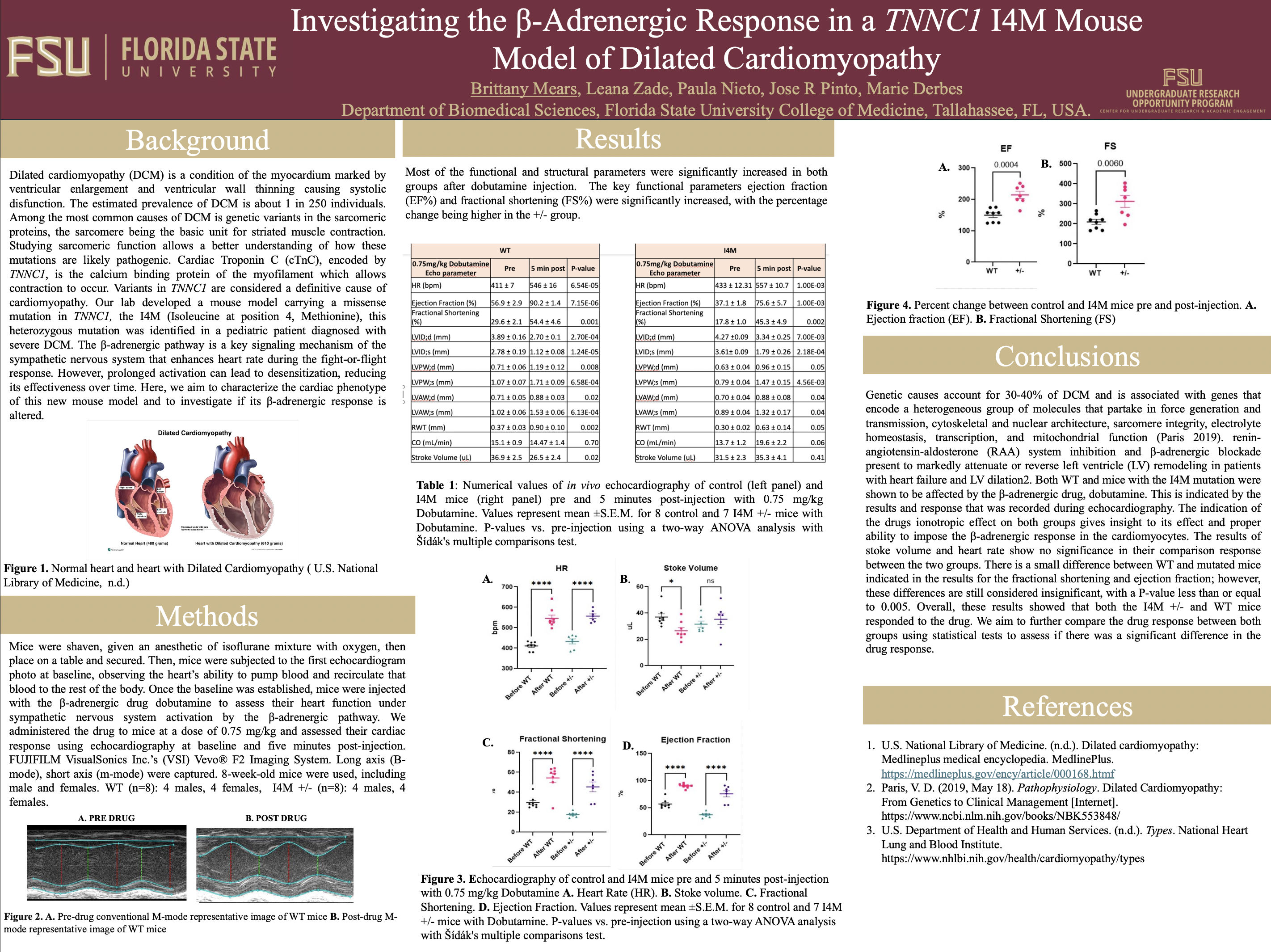Research Symposium
25th annual Undergraduate Research Symposium, April 1, 2025
Brittany Mears Poster Session 2: 10:45 am - 11:45 am/ Poster #54
BIO
My name is Brittany Mears, I am a student from Blountstown, Florida, with a strong interest in medicine and biomedical research. My current research focuses on Pediatric Dilated Cardiomyopathy, with the goal of contributing to a deeper understanding of this condition and its clinical implications. I am passionate about advancing medical knowledge and aspire to become a physician, where I can integrate research and clinical practice to improve patient outcomes. Beyond academics, I actively engage with developments in healthcare and remain committed to community involvement.
Investigating the β-Adrenergic Response in a TNNC1 I4M Mouse Model of Dilated Cardiomyopathy
Authors: Brittany Mears, Paula NietoStudent Major: Exercise Physiology
Mentor: Paula Nieto
Mentor's Department: Biomedical Sciences Mentor's College: College of Medicine Co-Presenters:
Abstract
Dilated cardiomyopathy (DCM) is a condition of the myocardium marked by ventricular enlargement and ventricular wall thinning causing systolic disfunction. The estimated prevalence of DCM is about 1 in 250 individuals. Among the most common causes of DCM is genetic variants in the sarcomeric proteins, the sarcomere being the basic unit for striated muscle contraction. Studying sarcomeric proteins allows a better understanding of how these mutations are likely pathogenic. Cardiac Troponin C (cTnC), encoded by TNNC1, is the calcium binding protein of the myofilament which allows contraction to occur. Variants in TNNC1 are considered more susceptible to causing cardiomyopathy. Our lab developed a mouse model carrying a missense mutation in TNNC1, the I4M (Isoleucine at position 4, Methionine), this heterozygous mutation identified in a pediatric patient diagnosed with severe DCM. We aim to explore the beta-adrenergic response in the animal model using dobutamine which binds to beta-adrenergic receptors in the cardiomyocytes. The beta-adrenergic pathway is a key signaling mechanism of the sympathetic nervous system that enhances heart rate during the fight-or-flight response. However, prolonged activation can lead to desensitization, reducing its effectiveness over time. We administered the drug to mice at a dose of 0.75 mg/kg and assessed their cardiac response using echocardiography at baseline and five minutes post-injection. The results showed that both the I4M and the control responded to the drug, we aim to further compare the drug response between both groups using statistical tests to assess if there was a significant difference in the drug response.
Keywords: Dilated Cardiomyopathy (DCM), I4M mutation, cardiac troponin C (cTnC), echocardiogram, dobutamine, isoflurane

